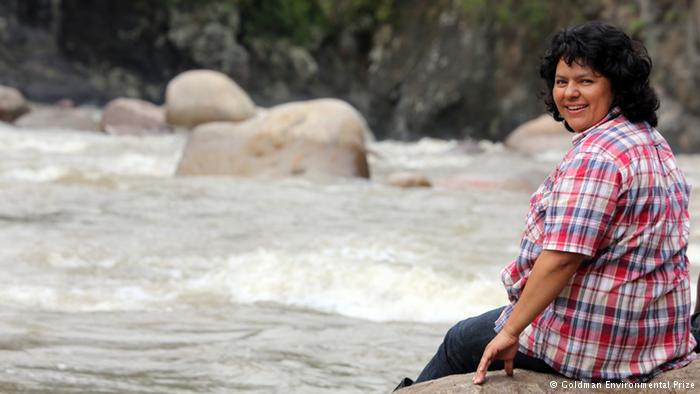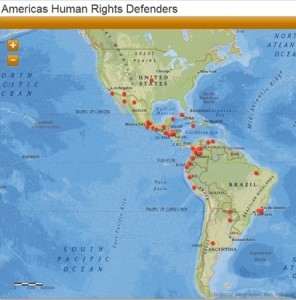
“Defending human rights in Honduras is a crime. They are criminalizing the right to our [indigenous] identity and sense of self.”
-Berta Cáceres, 2013
Gunmen brutally murdered Berta Cáceres, award-winning leader of the Council of Indigenous and Popular Organizations of Honduras (COPINH), in La Esperanza, Honduras on March 3, 2016. Almost immediately, the Honduran authorities jumped to the conclusion that she must have been killed in a robbery.
